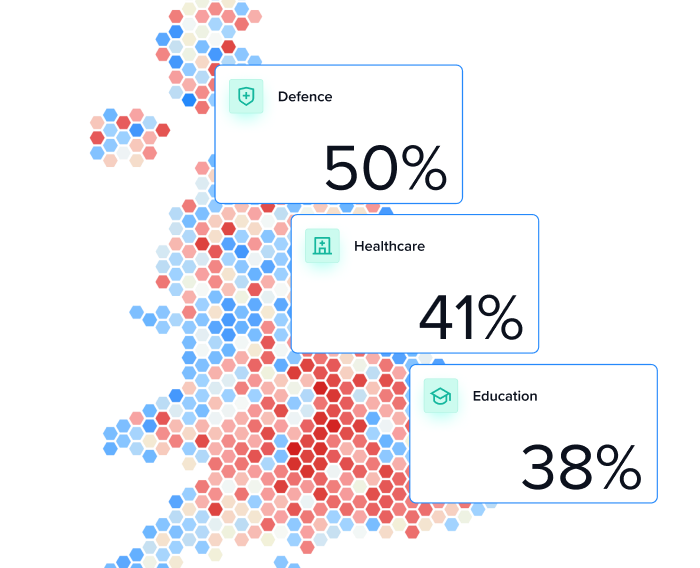Blog/Research
The five global groups that shape support for international cooperation
A new global study by Focaldata explores how people across 34 countries think about international cooperation: who supports it, who doubts it, and why.
Subsequently, to understand how people around the world think about cooperating across borders, we here at Focaldata initiated independent analysis of the underlying patterns in public attitudes, exploring how views of international cooperation differ across segments of society.
Rather than only examining individual questions in isolation, we also looked for the deeper structures that shape how people weigh the costs and benefits of global collaboration. Using statistical modelling (principal components analysis), we identified two broad dimensions that capture how the global public thinks about international cooperation.
We analysed how people around the world think about international cooperation across two broad dimensions.
On the first — a horizontal spectrum — views range from isolationist and zero-sum worldviews to internationalist and positive-sum ones, moving from those sceptical of cooperation to those who see it as beneficial both to themselves and to others.
The second dimension reflects a shift in motivation, from self-interest — viewing cooperation mainly through personal or national gain — to the common good, where global collaboration is associated with helping vulnerable communities, such as poorer countries, lower-income workers, and rural areas, to achieve shared progress.
Taken together, these dimensions reveal five broad attitudinal groups within the global population, each reflecting a distinct way of thinking about international cooperation:
- Anti-internationalists (~16%) – prefer to “go it alone.” They tend to hold nationalist, zero-sum worldviews, show low optimism about the economy, low trust in government, and feel disaffected with existing systems.
- Self-interested Multilateralists (~21%) – open to international cooperation when it serves their own or their country’s interests, but highly sensitive to the perceived cost of participation.
- Pragmatic Multilateralists (~22%) – conditional supporters who focus more on the effectiveness of cooperation than its cost, seeing value when collaboration delivers real results.
- Good Cause Multilateralists (~22%) – support cooperation when it seems effective or serves the common good, particularly when it benefits vulnerable groups such as poorer countries, low-income workers, or rural communities. (In this study, effectiveness and concern for the common good overlap closely.)
- Committed Internationalists (~21%) – the strongest believers in global collaboration, motivated both by the shared benefits it can create and by a broader sense of cosmopolitan idealism.
A few caveats on the analysis:
- This analysis represents a single global snapshot, not a trend over time.
- Percentages and group sizes shown are indicative rather than exact, as they are based on modelled estimates from the underlying statistical analysis of the survey results. They should be interpreted as approximate guides to the relative size and position of each group rather than precise measurements.
- Results reflect the combined views of respondents across 34 countries, providing a broad global picture rather than country-specific insights.
- “Global” here refers to the countries included in the study; findings should not be extrapolated to nations not covered.
- Future work will dive deeper into the data, examining country-level variations and the drivers behind these global patterns.
Please contact Matt Chennells (matt@focaldata.com) for more information or any questions.


